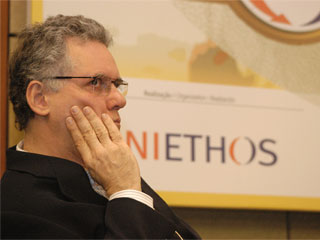21st Century: jobs will be different
The musical chairs in the economic sectors will change positions, but won't do without people
The unsustainability of the current economic model is a unanimity that cannot be considered stupid. That was shown in the debate that took place in the plenary session “Economic agenda for sustainability,” held during the Instituto Ethos’ 2007 Conference. The climate change phenomenon is considered a turning point between the groups that insist on maintaining a predatory model – a model that reinforces social inequalities, concentrates income in the hands of few and distributes poverty – and those that defend the new model, with balance and harmony in meeting social, environmental and economic demands. “The cost of inertia, of not doing anything, will be much higher than the investments needed for the changes, whether from governments, companies or individuals”, said Julio Moura, president and CEO of the GrupoNueva and vice president of the World Business Council for Sustainable Development (WBCSD). In his opinion, the good news is that the 190 companies that make up WBCSD, and represent US$ 6 trillion/year in sales, have already understood that they have a huge responsibility in the process of change.
In this scenario, Brazil is seen as a country of great business opportunities, especially because of its clean energy matrix. Although the country is among the top greenhouse gas emitters, such emissions occur due to poor governance – of both the Government and the companies – in fighting burning in the Amazon, responsible for most of the emissions. According to Sérgio Abranches, commentator of the Ecopolítica bulletin of CBN radio station, the solution depends on political will and is relatively easy. “We must change the development pattern to a low carbon one and this change will impact on all aspects of the human activity”, he said. In his opinion, the changes have to go through three phases: effective enforcement of the law, holding the public agents responsible, and long-term strategic vision.
The transitional period between the current economic model and the more sustainable one, will generate unemployment in unsustainable activities, but will bring new opportunities in potentially successful companies of the 21st Century. These will be socially responsible, environmentally correct, and economically fair. This is what Abranches believes in.
He mentions, for instance, that the jobs in large oil companies will disappear, but there will be new occupations in companies producing alternative energy such as wind and solar. “In the transitional period, there will be a trauma that might be softened by the action of a social protection network formed by Governments with the support of companies through the payment of taxes”, he said.
Fonte: Instituto Ethos

> Petrobras Watch the Petrobras coverage
© Copyright 2007, Instituto Ethos de Responsabilidade Social Empresarial. Todos os direitos reservados






